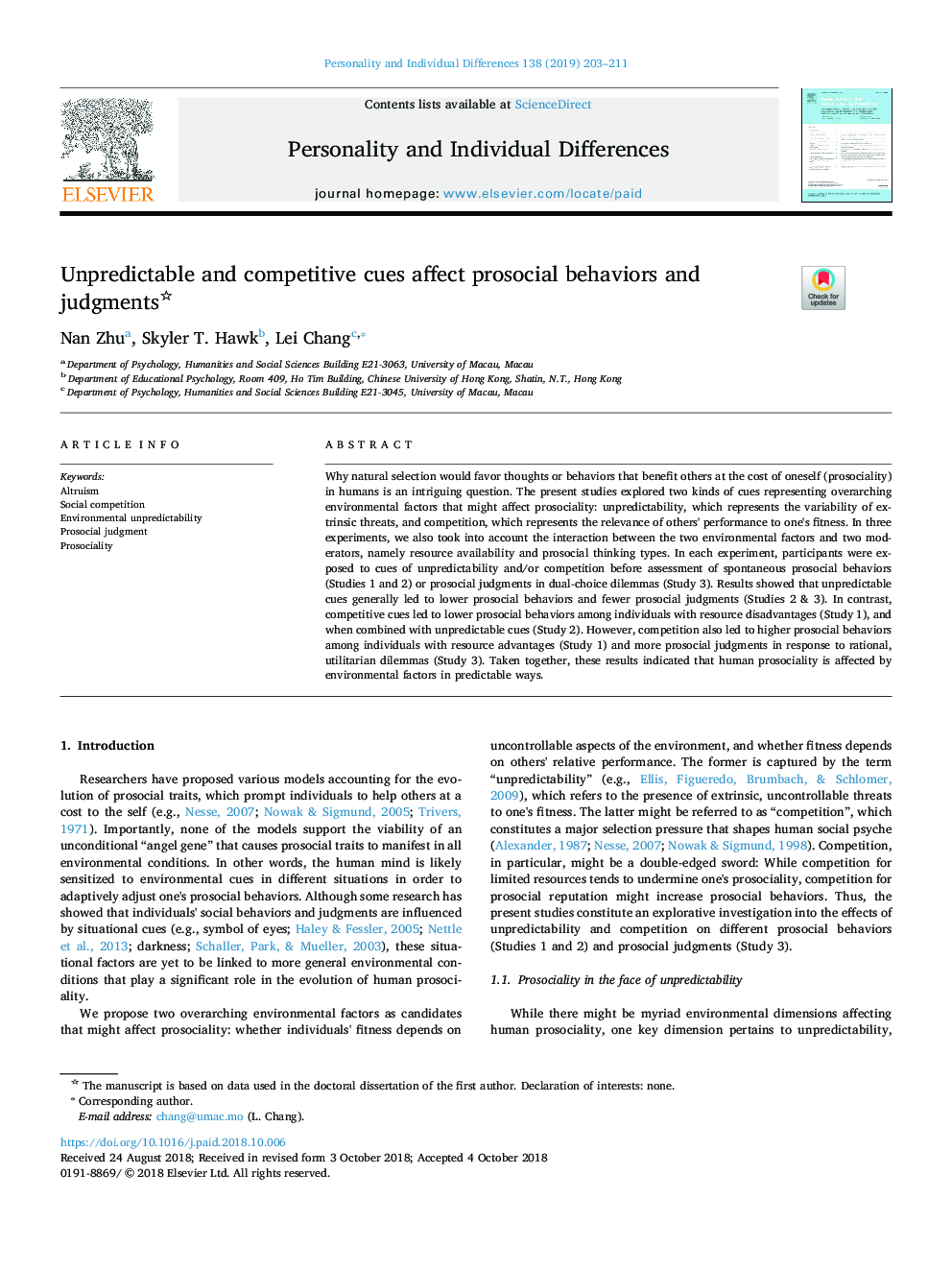| Article ID | Journal | Published Year | Pages | File Type |
|---|---|---|---|---|
| 11028803 | Personality and Individual Differences | 2019 | 9 Pages |
Abstract
Why natural selection would favor thoughts or behaviors that benefit others at the cost of oneself (prosociality) in humans is an intriguing question. The present studies explored two kinds of cues representing overarching environmental factors that might affect prosociality: unpredictability, which represents the variability of extrinsic threats, and competition, which represents the relevance of others' performance to one's fitness. In three experiments, we also took into account the interaction between the two environmental factors and two moderators, namely resource availability and prosocial thinking types. In each experiment, participants were exposed to cues of unpredictability and/or competition before assessment of spontaneous prosocial behaviors (Studies 1 and 2) or prosocial judgments in dual-choice dilemmas (Study 3). Results showed that unpredictable cues generally led to lower prosocial behaviors and fewer prosocial judgments (Studies 2 & 3). In contrast, competitive cues led to lower prosocial behaviors among individuals with resource disadvantages (Study 1), and when combined with unpredictable cues (Study 2). However, competition also led to higher prosocial behaviors among individuals with resource advantages (Study 1) and more prosocial judgments in response to rational, utilitarian dilemmas (Study 3). Taken together, these results indicated that human prosociality is affected by environmental factors in predictable ways.
Related Topics
Life Sciences
Neuroscience
Behavioral Neuroscience
Authors
Nan Zhu, Skyler T. Hawk, Lei Chang,
